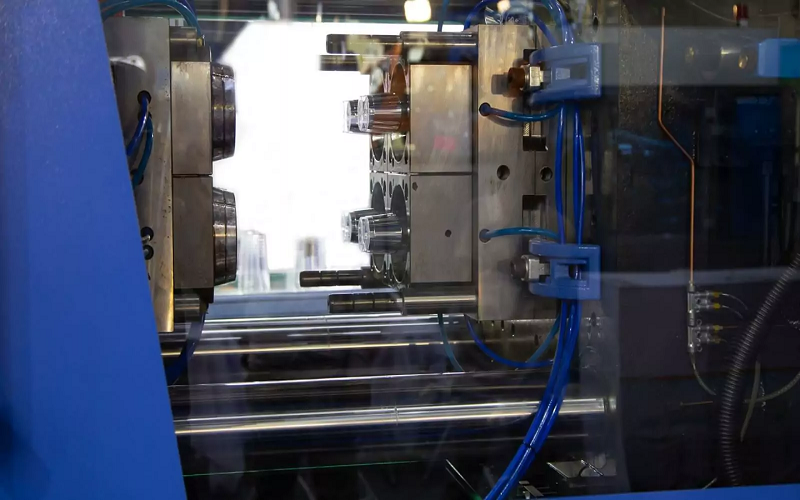In the precision-driven world of injection molding, maintaining the utmost quality and operational efficiency isn’t just beneficial—it’s imperative.
Factory audits represent a critical component in safeguarding these standards, offering a systematic approach to review and improve manufacturing processes.
These audits are not merely procedural but a strategic toolkit that can drive significant business advantages, from enhancing product quality to optimizing production flow.
What is a Factory Audit in the Context of Injection Molding?
A factory audit in the realm of injection molding is a comprehensive evaluation conducted by either internal or external auditors to assess various aspects of the manufacturing process.
It involves a detailed inspection of the production facility, including equipment condition, compliance with safety and environmental regulations, and the quality control systems in place.
QCADVISOR factory audit services specialize in providing these evaluations, ensuring that injection molding facilities meet industry standards and deliver high-quality products consistently.
These services are crucial for manufacturers looking to optimize their operations and adhere to stringent market requirements.
Why are Factory Audits Crucial for Injection Molding Companies?
Regular factory audits are indispensable for injection molding companies aiming to remain competitive and compliant in a fast-evolving industry. These audits provide numerous benefits, including:
- Enhancing Product Quality: By identifying discrepancies in production and suggesting improvements, audits help in refining the final product’s quality.
- Ensuring Compliance with Industry Standards: Audits verify adherence to safety and quality regulations, preventing costly legal issues and fines.
- Boosting Production Efficiency: Through the systematic examination of processes, audits can highlight inefficiencies and suggest optimizations.
Key Benefits:
- Ensures compliance with regulatory and quality standards.
- Identifies opportunities for cost reduction and efficiency improvement.
- Strengthens quality control and product consistency.
Ensuring Compliance with Industry Standards
Staying compliant with industry standards is not just about fulfilling legal requirements; it’s about setting a foundation for excellence.
Factory audits scrutinize the adherence to these standards to safeguard against non-compliance risks, which could lead to product recalls or damage to brand reputation.
Enhancing Production Efficiency and Quality Control
Factory audits dive deep into the operational aspects of injection molding processes, analyzing everything from the use of raw materials to the efficiency of the production line.
This thorough inspection helps in pinpointing areas where quality control can be bolstered and production workflows can be enhanced.
Identifying Areas for Continuous Improvement
Continuous improvement is the lifeblood of any forward-thinking manufacturing setup. Through regular audits, injection molding companies can identify iterative enhancements in their processes, whether through technological upgrades or better workforce training.
How to Prepare for a Factory Audit in Injection Molding?
Preparing for a factory audit can be a detailed and meticulous process. Here’s a step-by-step guide to ensure you are well-prepared:
- Review Your Quality Management Systems: Assess your current quality control protocols and documentation to ensure they are up to date and comprehensive.
- Prepare Your Production Floor: Ensure that the production area is organized and that all equipment is operating correctly.
- Document and Record Management: Gather all necessary records and documents that auditors might request. This includes compliance certifications, employee training records, and maintenance logs.
Essential Documents and Processes to Review:
- Quality control records
- Compliance certificates
- Maintenance and calibration logs
Key Components of a Factory Audit in Injection Molding
When conducting a factory audit, auditors focus on several crucial elements to ensure that the injection molding process meets the highest standards of quality and efficiency. These components include:
- Machinery and Equipment Inspection: Auditors assess the condition and maintenance records of injection molding machines to ensure they operate optimally. To further enhance the inspection, auditors also analyze any recurring injection molding defects, which helps in identifying issues related to the machinery’s performance and maintenance effectiveness.
- Material Handling and Storage Practices: Proper storage and handling of materials are critical for maintaining quality. Auditors review these practices to prevent contamination or damage.
- Employee Training and Safety Protocols: Ensuring that all personnel are adequately trained and follow safety guidelines is another critical area of focus during audits.

Conducting the Audit: What to Expect on the Day?
The day of the factory audit follows a structured process designed to cover all aspects of the operation thoroughly. Here’s what typically happens:
- Opening Meeting: The day begins with a meeting between the factory management and the auditing team to discuss the scope and objectives of the audit.
- Tour of the Facilities: Auditors tour the production area, warehouses, and other relevant spaces, observing processes and speaking with employees.
- Review of Documents and Compliance Checks: A detailed examination of documents and records to verify compliance with standards and regulations.
- Closing Meeting: The audit concludes with a meeting to discuss preliminary findings and the next steps.
Activities Typically Conducted During a Factory Audit:
- Visual inspections of machinery and workflow
- Interviews with staff to assess training and knowledge
- Verification of compliance documents and safety records
Common Findings and Non-Compliances in Injection Molding Audits
Factory audits often uncover several common issues that can affect the overall efficiency and product quality in injection molding. These include:
- Inadequate maintenance of machinery leading to downtime and defects
- Insufficient training or outdated practices among staff
- Poor material handling and storage conditions
Frequent Non-Compliance Areas:
- Non-adherence to safety standards
- Inaccurate or incomplete record-keeping
- Non-compliance with environmental regulations
How to Effectively Address Audit Findings?
Addressing the findings from a factory audit involves a structured approach to corrective actions. Here are guidelines on how to effectively respond:
- Develop a Corrective Action Plan: Based on the audit findings, create a plan that addresses each identified issue with specific actions and timelines.
- Implement Changes: Execute the corrective actions as planned and monitor their progress.
- Follow-Up Audits: Conduct follow-up audits to ensure that the corrective actions have been effective and that compliance is maintained.
Steps for Developing an Effective Corrective Action Plan:
- Identification of root causes for each finding
- Assignment of responsibilities for implementing corrective actions
- Setting deadlines for action items and review points
Best Practices for Continuous Compliance in Injection Molding
To ensure ongoing compliance and continuous improvement, injection molding companies should adopt several best practices:
- Regular Internal Audits and Checkups: These help catch issues before they become significant problems and demonstrate commitment to continuous improvement.
- Employee Training and Engagement: Regularly update training programs to reflect the latest industry standards and technology.
- Upgrading Technology and Processes: Continuously assess and integrate technological advancements to enhance productivity and compliance.
The Impact of Factory Audits on Product Quality and Company Reputation
Regular factory audits significantly enhance product quality and can positively influence a company’s reputation in the market.
By demonstrating a commitment to quality and compliance, companies build trust with clients and regulatory bodies alike.

How to Choose an Auditor for Injection Molding?
Selecting the right auditor is crucial for effective factory audits. Look for auditors with extensive experience in the injection molding industry and a thorough understanding of its specific challenges and standards.
Criteria for Choosing an Auditor:
- Industry-specific experience and expertise
- Reputation and reliability
- Methodology and approach to auditing
Case Studies: Success Stories of Improved Production Post Audit
Real-world examples of companies that have seen tangible improvements following rigorous factory audits offer valuable insights into the benefits of this practice.
Key Outcomes from Successful Audits:
- Enhanced operational efficiency
- Improved product quality
- Increased compliance and reduced risk
Future Trends in Factory Auditing for Injection Molding
As the injection molding industry evolves, so too do the techniques and technologies used in factory audits.
Anticipating and adapting to these changes will be crucial for companies aiming to maintain the edge in a competitive market.
Conclusion
Factory audits are not just a regulatory requirement but a cornerstone of modern injection molding production.
By embracing these audits, companies can not only comply with industry standards but also significantly improve their operational efficiency, product quality, and market reputation.
With the right preparation, execution, and response to audit findings, injection molding companies can achieve and sustain high performance and reliability.
